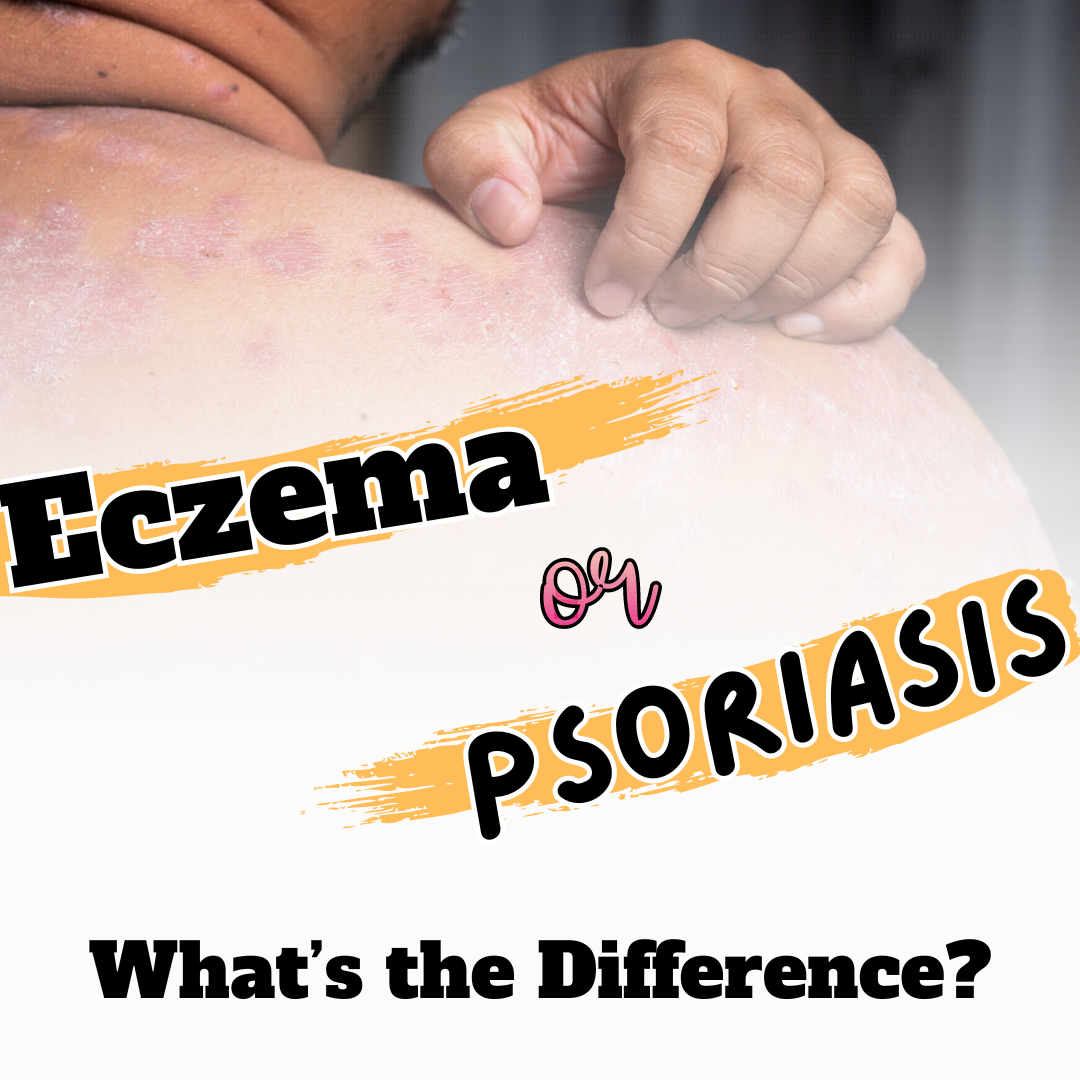
What's the Difference between Eczema and Psoriasis?
As a parent, it can be distressing to see your child suffering from skin conditions like eczema or psoriasis. These two conditions share some similarities in appearance and symptoms, which can often lead to confusion. However, understanding the differences between eczema and psoriasis is crucial for proper management and treatment. In this month's blog, we'll delve into the distinctions between these two common skin disorders to help you better identify and manage your child's condition.
Eczema vs. Psoriasis: What's the Difference?
Understanding Eczema
Eczema, also known as atopic dermatitis, is a chronic inflammatory skin condition characterized by red, itchy, and inflamed patches. It commonly appears on the face, hands, elbows, and knees, but can affect any part of the body. Eczema often begins in infancy or early childhood and tends to flare up periodically.
Symptoms:
Common symptoms of eczema include dry, scaly skin, intense itching, redness, swelling, and sometimes oozing or crusting of the affected areas. It can also lead to skin infections if scratched excessively.
Triggers:
Eczema flare-ups can be triggered by various factors, including irritants (such as soaps, detergents, and certain fabrics), allergens (like pollen, pet dander, and dust mites), weather changes, stress, and hormonal fluctuations.
Understanding Psoriasis
Psoriasis is a chronic autoimmune disorder characterized by the rapid overproduction of skin cells, leading to the development of thick, red, scaly patches known as plaques. These plaques can appear anywhere on the body, including the scalp, elbows, knees, and lower back. Psoriasis often develops between the ages of 15 and 35 but can occur at any age.
Symptoms:
The primary symptoms of psoriasis include raised, red patches covered with silvery scales, itching, burning, and sometimes pain or bleeding if the patches are scratched or irritated.
Triggers:
Psoriasis flare-ups can be triggered by factors such as stress, infections (like strep throat), certain medications, injury to the skin (such as cuts or sunburns), and changes in weather or climate.
Key Differences Between Eczema and Psoriasis
-
Underlying Causes: Eczema is primarily driven by genetic and environmental factors, including allergies and immune system dysfunction. In contrast, psoriasis is an autoimmune disorder caused by an overactive immune response triggering excessive skin cell growth.
-
Appearance of Lesions: While both conditions involve red, inflamed patches, eczema tends to be more moist and weepy, with the possibility of oozing or crusting. Psoriasis, on the other hand, typically presents as thicker, silver-scaled plaques.
-
Age of Onset: Eczema often begins in infancy or early childhood, whereas psoriasis usually develops later in adolescence or adulthood.
-
Treatment Approaches: While there is no cure for either condition, treatment strategies differ. Eczema management focuses on moisturizing the skin, avoiding triggers, and using topical corticosteroids or immunomodulators. Psoriasis treatment may involve topical medications, phototherapy, oral medications, or biologic injections, depending on the severity of symptoms.
Understanding the differences between eczema and psoriasis is essential for parents who may be navigating the challenges of managing their child's skin condition. By recognizing the distinct characteristics and triggers of each condition, parents can work closely with healthcare professionals to develop effective treatment plans tailored to their child's needs. Remember, early intervention and proper management can significantly improve your child's quality of life and minimize the impact of these chronic skin disorders.
